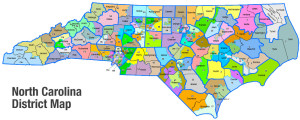
Roy Cooper (left) and Pat McCrory (right)
In the weeks following Nov. 8, Americans all across the U.S. could take solace in the fact that election season was finally over. Unfortunately for North Carolinians, the most tumultuous and divisive election season in recent memory refused to leave The Old North State.
Democratic challenger Roy Cooper appeared to have won the governor’s seat over Republican incumbent Pat McCrory. Cooper’s lead had finally passed 10,000 votes after extended time counting provisional and absentee ballots in one of the closest gubernatorial races in the country. A statewide recount cannot be conducted once a candidate has reached a 10,000 vote lead, per North Carolina law.
However, the North Carolina State Board of Elections voted 3-2 in favor of a recount of about 90,000 early votes in Durham County on Wednesday. These votes were added to Cooper’s count in the literal eleventh hour of election night. He maintained a lead over McCrory ever since.
Opinions of the recount were drawn down party lines. Republican proponents of the recount said that it ensures transparency. Democrats argued that the recount is a waste of time and money.
“It is wrong that Gov. McCrory continues to waste taxpayer money with false accusations and attempts to delay and that the Republican-controlled Board of Elections did not follow the law,” said Cooper Campaign Manager, Trey Nix.
In addition to the governor’s race, a federal panel of judges ruled that the state legislature must redraw districts by next spring to override the districts. The same panel ruled the districts racially gerrymandered and thereby unconstitutional last summer, but stated that the election date was too imminent to redraw the districts at the time.
This means that North Carolinians will have to head back to the polls in 2017 to vote in state legislative races again in a special election. For Western North Carolina, the elections may look all too familiar.
Todd Collins, Director of Public Policy Institute at Western Carolina University, said that a fourth race for the District 119 House of Representatives seat between recently elected Mike Clampitt (R-Bryson City) and former incumbent Joe Sam Queen (D-Waynesville) is likely.
The third time may be the charm if Democrat Jane Hipps challenges Republican incumbent Jim Davis once again in 2017. Davis won both previous elections.

Courtesy of dogsanddoubles.com
The legislative redistricting could pose a threat to Republican super-majorities in the General Assembly.
Without them, the legislature cannot override a veto from the governor. Republicans have maintained control of the General Assembly since 2011, the same year the recently struck districts were drawn.
In October, when discussing the possibility of an independent, non-partisan body drawing legislative districts instead of the legislature itself, Collins made a practical point.
“We could have an independent, citizen-led board that draws the districts, but who has to agree to that? The legislature,” said Collins.
As the saying goes, those in power rarely give up that power easily. This reigns especially true in the polarized world of American politics.



